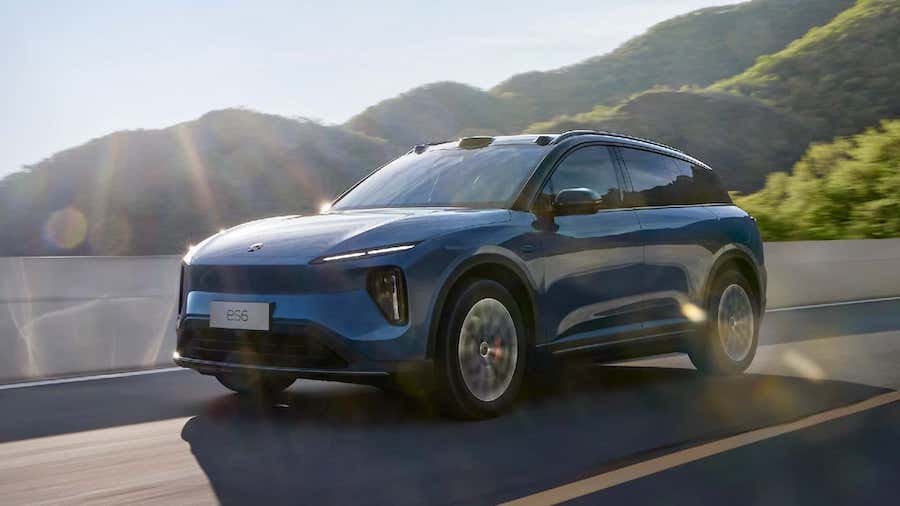Document Shows Nio ES6 With 577-Mile Range, 150-kWh Solid-State Battery

Updated user manuals released by Nio include a new 150-kilowatt-hour semi-solid state battery pack alongside the existing battery types. The solid-state batteries will be available on the Nio ES6 in China starting in July, as per Nio CEO William Li.
In solid-state batteries, solid electrolytes – the charge-carrying components between the two electrodes – are used instead of liquid or polymer gel electrolytes in current lithium-ion or lithium polymer batteries.
Several companies have announced investments in solid-state battery technology for its advantages over lithium-ion batteries – they’re considered more energy dense and faster charging while using the same physical space.
The document reveals that Nio’s new 150 kWh battery, supplied by Beijing WeLion Energy Technology, tips scales at 575 kilograms, 20 kg heavier than CATL’s 100 kWh packs widely available on Nio models. But it offers an energy density of 261 watt-hours per kilogram, 44.44 percent higher than CATL’s unit with 180 Wh/kg.
That said, there are 384 cells in the pack, much higher than the 96 cells in the CATL unit. The energy density of these new cells is 360 Wh/kg, as per previously shared information by WeLion, reported Cnevpost.
At the Nio Day event in January 2021, when the Chinese carmaker announced its flagship ET7 electric sedan, the brand also unveiled the aforementioned solid-state battery, claiming it would deliver over 1000 kilometers (620 miles) of range.
SUVs aren’t as aerodynamic as sedans, and are likely to be heavier, which might be the reason why the ES6’s estimated range is slightly lower at 930 km (577 miles). Future Nio sedans might be able to deliver over 600 miles range with the new solid-state pack.
Although the range figures might vary depending on the region and testing cycles.
The brand reportedly faced challenges in scaling up and achieving cost parity with the current battery technology, which could be the reason why we’re seeing a gap of over two years between the announcement and deliveries.
Solid-state batteries could become mainstream in the future as an increasing number of automakers are looking for ways to democratize them.
Recently, Toyota claimed its technological breakthrough could result in a solid-state battery capable of delivering 745 miles range, with a charging time of just 10 minutes.
Related News
